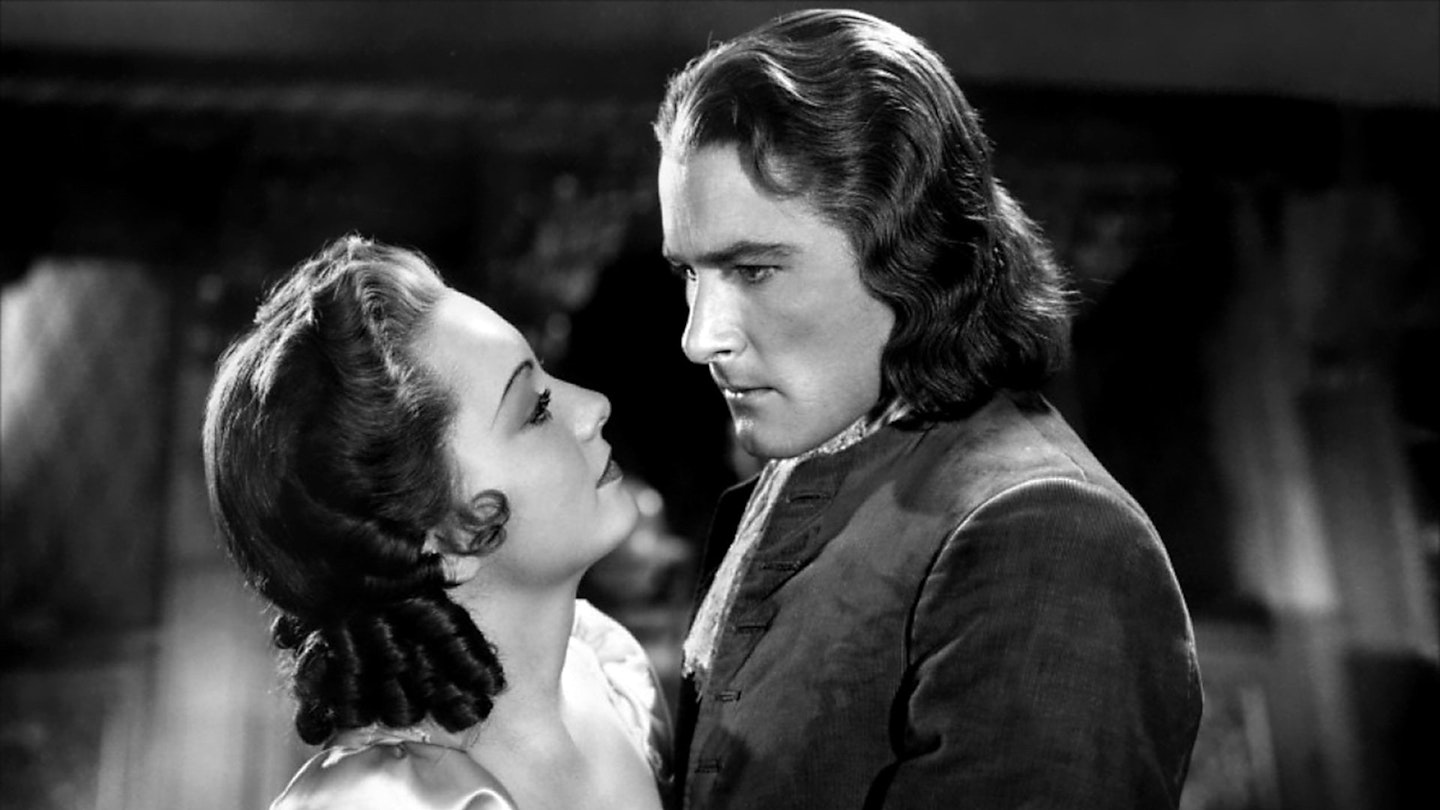Errol Flynn and his swaggering gait were unheard of before director Michael Curtiz plucked him from the veils of obscurity for this splendid piratical jaunt. It proved the call of destiny, the film launched a career of grandiose and high flung swashbuckling, a new form of heroism that struck its time, Depression hit America, like a bolt of electricity. Yet, to put the success of this tale of sweet revenge down to the star alone is to ignore Curtiz’s lavish shots of the sun caressed Caribbean seas and the ease with which Casey Robinson relays Rafael Sabatini’s novel with all its Defoe-like textures.
This is shaggy dog history, of course, the pirate captain as dashing rouge, as tanned as a teak deck. A further cry from the scheming brutes of reality you could not reach. Yet, in Flynn’s hands, Blood becomes a more complex roustabout than you might expect. This is a man wronged in the past and broken free from slavery — that he was owned by Olivia de Havilland’s arch and spoiled Arabella Bishop and would eventually revisit her adds a deft sexual power game to all the polished spills of swordplay. Life has led to Blood, he swaggers because he is proud, he flaunts the rules because they have turned against him, but his moral core, nestled close to his heart, will ignite when a just cause is shown. He is certain, a magnificent, unironic gleam of old Hollywood.
And Curtiz, who would go on to make a dozen films with Flynn despite rumours of mutual hatred, matched his star’s flamboyance with a gorgeous sense of spectacle very much his own. The film is constantly spoiling for a fight, and Flynn’s glorious talents with a blade are shown to full effect, especially when he duels nefarious rival Basil Rathbone. That pair would join Curtiz for the splendour of The Adventures Of Robin Hood, the signature film of the age, but in many ways Captain Blood is a more layered and memorable film.
